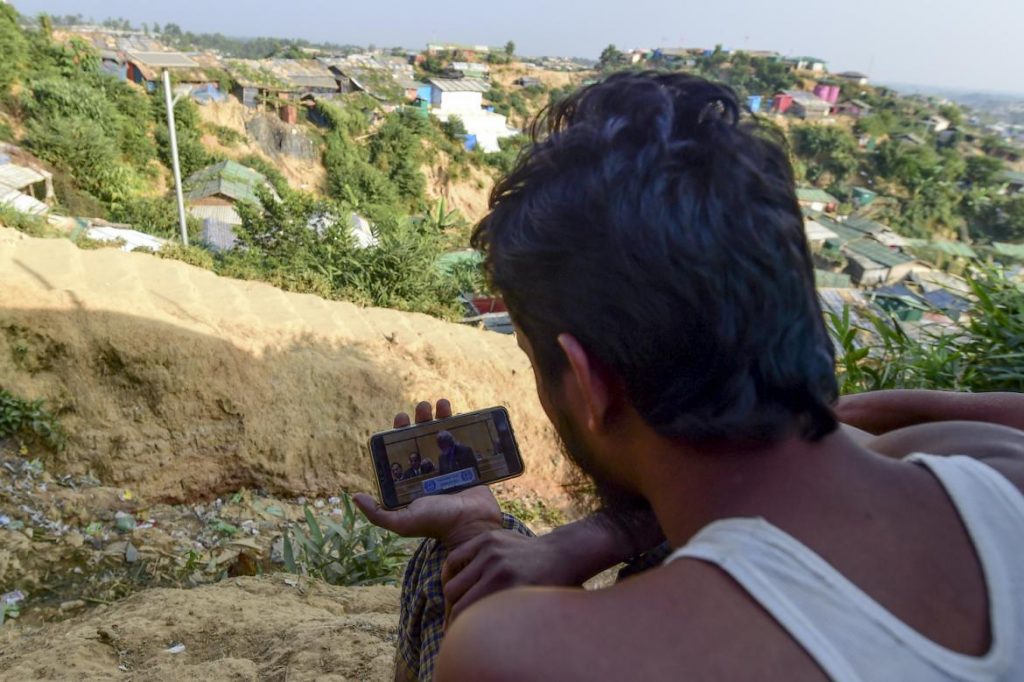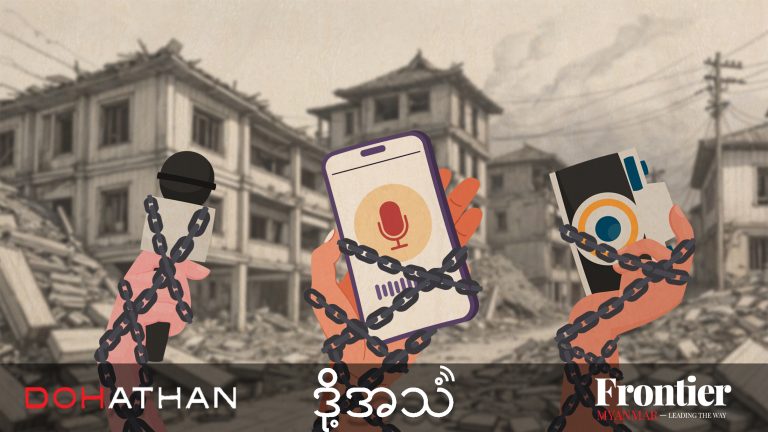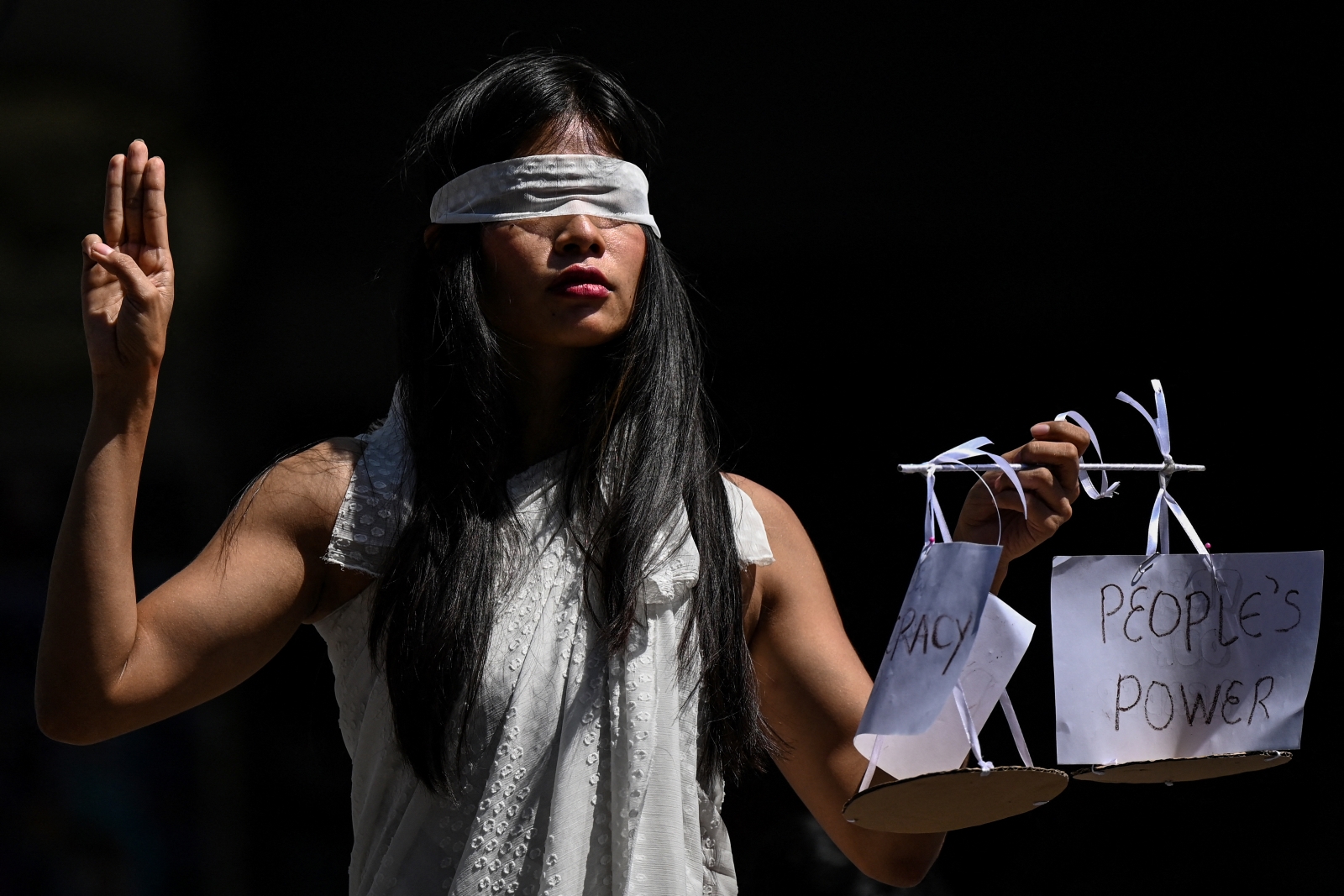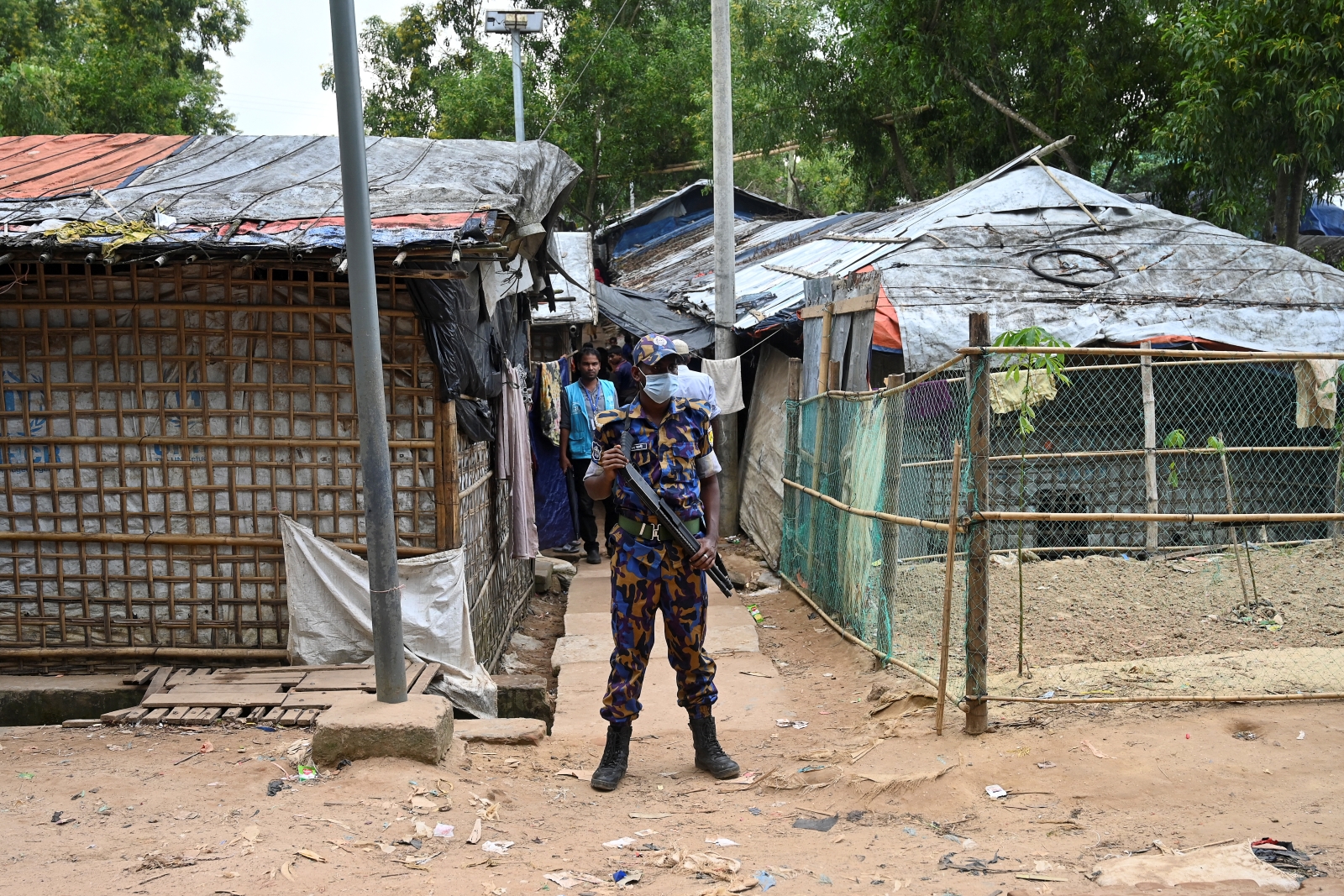The Bangladesh government’s decision to deny Rohingya refugees access to mobile phone networks is exacerbating suffering in the camps by isolating residents from their families and support networks.
By KHIN MAUNG | FRONTIER
FOR decades, the Rohingya community has been facing rights abuses in Myanmar, the country of our birth. We were denied basic rights in Myanmar, including freedom of movement, freedom of expression, access to health services, education and livelihoods.
Since August 2017, more than 740,000 of us have been forced to flee military brutality and take shelter in Bangladesh. We have been accepted temporarily by many of our Bangladeshi brothers and sisters. Others have treated us as unwanted guests, wrongly believing that we will never return home. Sometimes in Bangladesh it feels as though we may face a similar situation to that which we faced in Myanmar.
On September 1, the Bangladesh Telecommunication Regulatory Commission ordered telecommunication operators to shut down mobile data services in the camps. Although it’s still possible to make phone calls in the camps, the authorities are also trying to stop refugees from using phones entirely.
Bangladeshi SIM cards are being collected on a rolling basis. On October 24, for example, authorities responsible for the camps ordered the collection of SIM cards from refugees in camps 6, 11, 12, 8E and 8W. Loudspeakers in the camps announce that refugees using SIMs will be punished, as though we are all criminals.
Support more independent journalism like this. Sign up to be a Frontier member.
Most of us worry that without a phone or internet connection we cannot get news and information about what is happening in the camps and beyond. Blocking phone services, particularly internet access, for genocide survivors in the camps isolates us from our families and relatives who are living in Myanmar and elsewhere. It prevents us from accessing the social and support networks that help us to maintain our links to home. Mobile phone connections were a vital part of our survival strategy in Myanmar and beyond. Without them, we may not have been able to escape from Myanmar, and the world may never have come to know about our suffering.
The police superintendent for Cox’s Bazar, Mr A.K.M. Iqbal Hossain, welcomed the decision to block the mobile network, saying that refugees have been using mobile phone access to conduct criminal activities, such as the trafficking of methamphetamine pills worth hundreds of millions of dollars. However, the measures to curb the criminal activities of a few have resulted in putting our larger population of Rohingya in the camps at risk from crime. Individuals should be punished for criminal activities such as drugs trafficking, which impact all of our lives and put us all at risk. But we should not all be punished as a group by restricting our rights and freedoms.
Most refugees believe that blocking the network actually has a negative impact on safety and security in the camps because it means we are unable to report crime and contact the police in emergencies. We have deep concerns that kidnappings and trafficking will increase for this reason. Traffickers quickly adapt to an environment of impunity in the camps, where they can commit abuses without fear of the authorities.
Many developments are taking place at the international level that will affect our lives, including the case at the International Court of Justice and the investigation by the International Criminal Court, and issues related to the repatriation process. In the camps we feel paralysed, unable to play our part because of the lack of access to information.
This feeling of powerlessness is creating tensions in the camps. Without access to outside information, rumours and fears increase day by day among refugees. This is unhealthy for a community trying to rebuild after our collective traumas; we are losing hope for the future. When we lose hope, we suffer from depression.
We have limited avenues to demand our rights. All we can do is humbly request the Bangladesh government to restore internet services. To build healthy communities, we need to maintain contact with our family and friends. As genocide survivors, we need to feel safe and connected to events around the world that affect us. We need the mobile phone connections restored, so we can also restore our hope and engagement.







